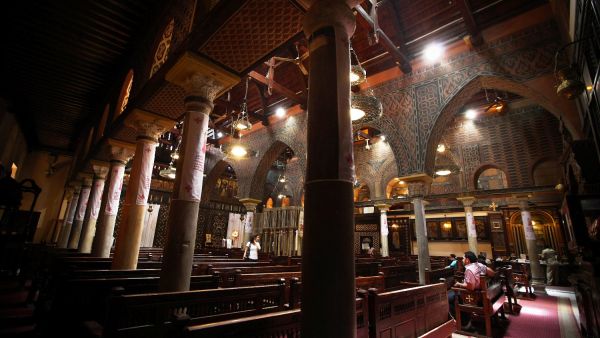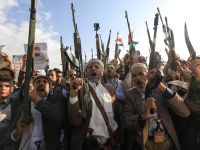A “fact-finding” committee has been formed in the wake of Sunday’s deadly violence in Egypt, involving the Coptic community. Actually, the Supreme Military Council, which is supposed to be running the country, asked the Egyptian government, which is also supposed to be running the country, to form the committee.
The Egyptian public hoped that the toppling of President Hosni Mubarak earlier this year would lead to real change, but when state laxity and sectarian clashes make the headlines, they can be forgiven for being anxious about the fate of their “revolution” and questioning whether any real change has taken place.
Sunday’s violence took place in part because the authorities appeared unable to protect a Coptic place of worship against an attack by Islamic fundamentalists. The Copts demanded action against the provincial governor who failed to stop the attack, inviting a heavy-handed response by the army, which left several dozen dead protestors in its wake.
The sectarian violence represents a serious threat to the stability of Egypt, which is in a race against time to see a successful round of parliamentary elections take place before the end of the year. The violence has ramifications outside of Egypt as well, since minority groups throughout the region have fears about the direction in which the Arab world is headed.
But more pertinently, the deadly clashes in Cairo this weekend are the latest in a series of threats to the achievements of the Egyptian people earlier this year, when they brought down Mubarak. Such incidents rob the “Arab spring” of its credibility, and sour many people about the prospects for the future.
The ruling authorities in Egypt have promised to take steps to ensure coexistence, but their failure thus far to protect minority rights do not bode well. The Supreme Military Council can issue all of the pronouncements that it pleases, but only serious action on the ground will convince people that their rights are being protected. The latest fact-finding committee must produce results, and quickly.
Both parties might claim that outside elements were behind the violence, but this line of argument is becoming overused – even when the accusations are true, they do little to generate a solution to the problem at hand.
If the Egyptians are serious about ending such incidents of sectarian tension and violence, the relevant religious figures need to sit down and talk, and offer realistic plans of action. Meanwhile, the regime must produce and implement a policy that safeguards each side’s right to worship, and no special committees should be required for such an action.
A government may confront dissent through employing deadly force; another effective method is forming a committee. If the Egyptian authorities are forming a committee to brush the latest incident under the rug, they’ll soon find themselves facing another outbreak of violence, with potentially disastrous repercussions.








